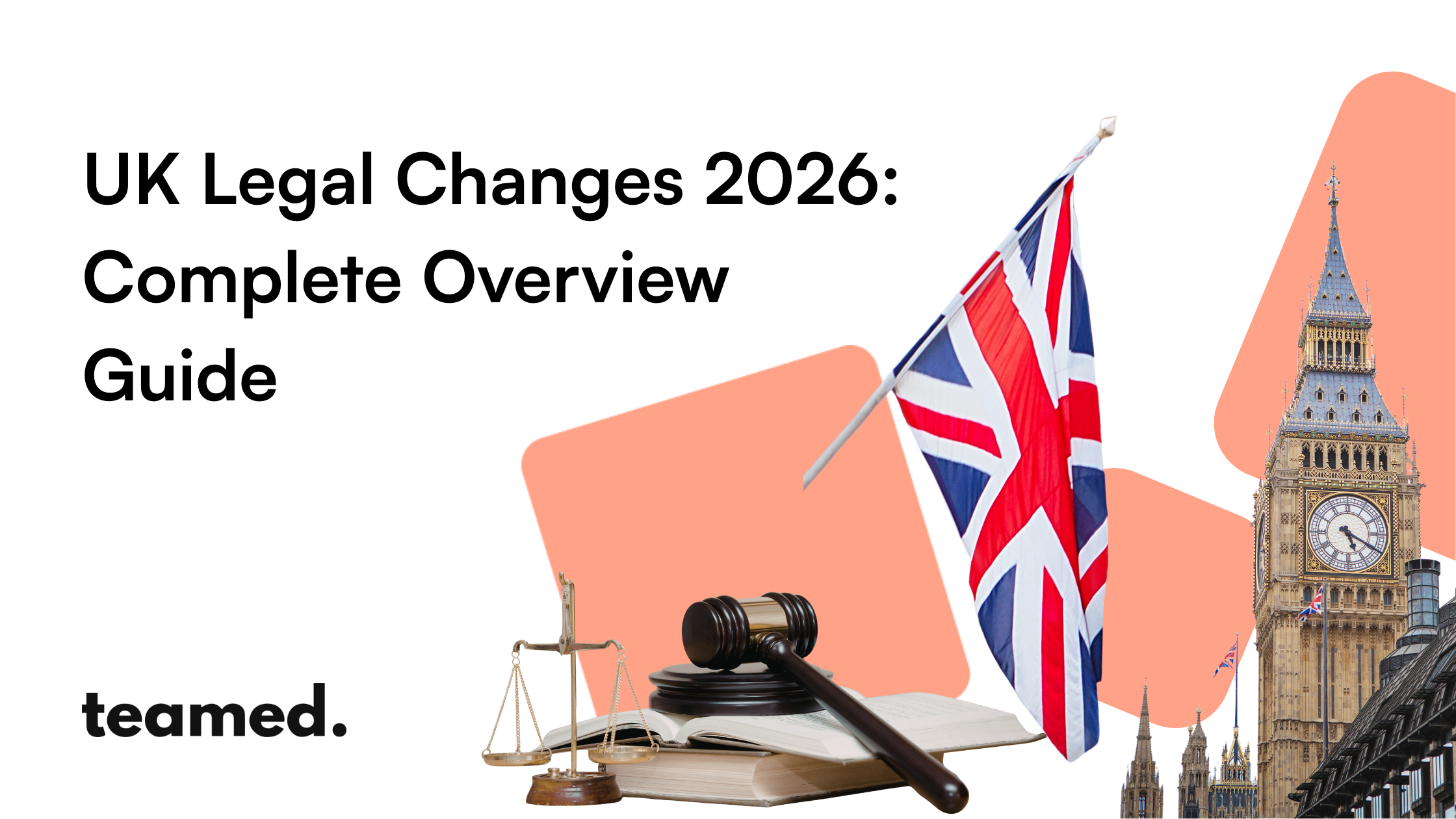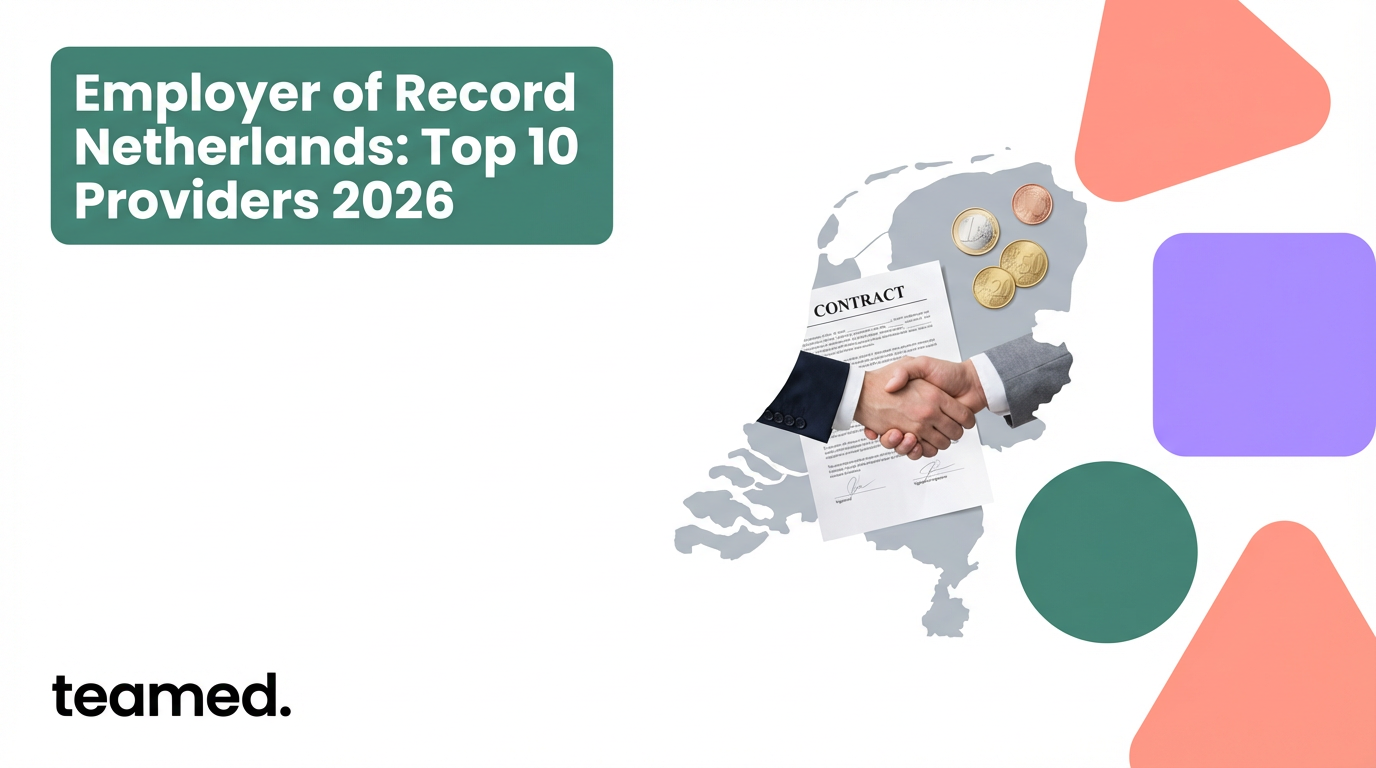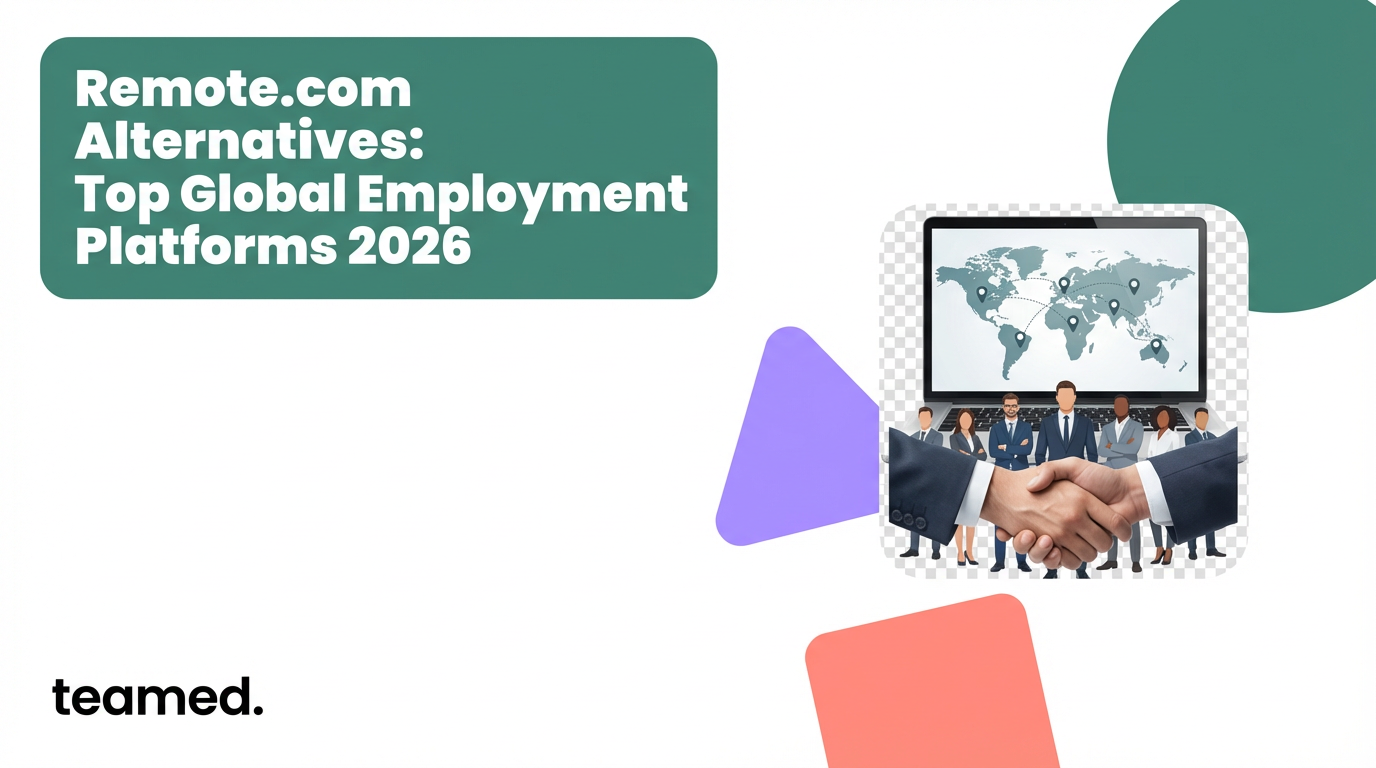PEO vs. EOR: A decision framework for mid-sized businesses
Hiring talent in a new country meant mountains of paperwork, expensive consultants, and late nights pounding heads on desks to comply with local laws. Even then, you could never be sure you followed the correct procedures.
Today, Professional Employer Organisations (PEOs) and Employers of Record (EORs) make it easier, faster, and stress-free. But which one’s right for your mid-market businesses?
Choosing well means finding a trustworthy partner to hire foreign talent quickly and compliantly. Choosing wrong = all the figurative and literal headaches above.
In this article, you’ll learn how costs, compliance risks, speed, and scale differ between each hiring model so you can confidently pick the right one for you.
Key takeaways: PEO vs. EOR
- Hiring abroad means complying with a slew of local employment laws, applying the correct tax codes, and managing employee benefits.
- A PEO shares legal risks while an EOR offers comprehensive legal support and ownership, letting you hire in days without setting up a legal entity.
- Choose an EOR carefully, as not all offer the same level of support, flexibility, or scale.
- From transparent pricing to 24/5 expert support, Teamed ensures clients have everything they need to hire quickly and confidently in foreign markets.
What is a Professional Employer Organisation (PEO) vs. an Employer of Record (EOR)?
Both Professional Employer Organisations (PEOs) and Employers of Record (EORs) manage payroll, handle benefits, and take human resources (HR) admin off your plate. But your legal structure, responsibilities, and scalability will differ.
A Professional Employer Organisation (PEO) is a third-party company that outsources hiring and other HR functions through a co-employment model. The PEO doesn’t replace you as the employer — it shares the role.
The PEO handles admin work, payroll processing, tax and legal compliance, and benefits management. Meanwhile, you remain the official employer on employment contracts and hold legal liability.
The downside? You’ll need your own legal entity in the country where you want to hire.
An Employer of Record (EOR) is the legal employer of your staff in a foreign country.
Don’t have a legal entity, but still want to hire there? That’s where an EOR shines.
An EOR takes ownership of the employment contract, local tax filings, payroll processing, health insurance, and ensuring compliance with that country’s labour laws.
You can still track everything on a dashboard like the one below, though you won’t have to get stuck into paperwork.
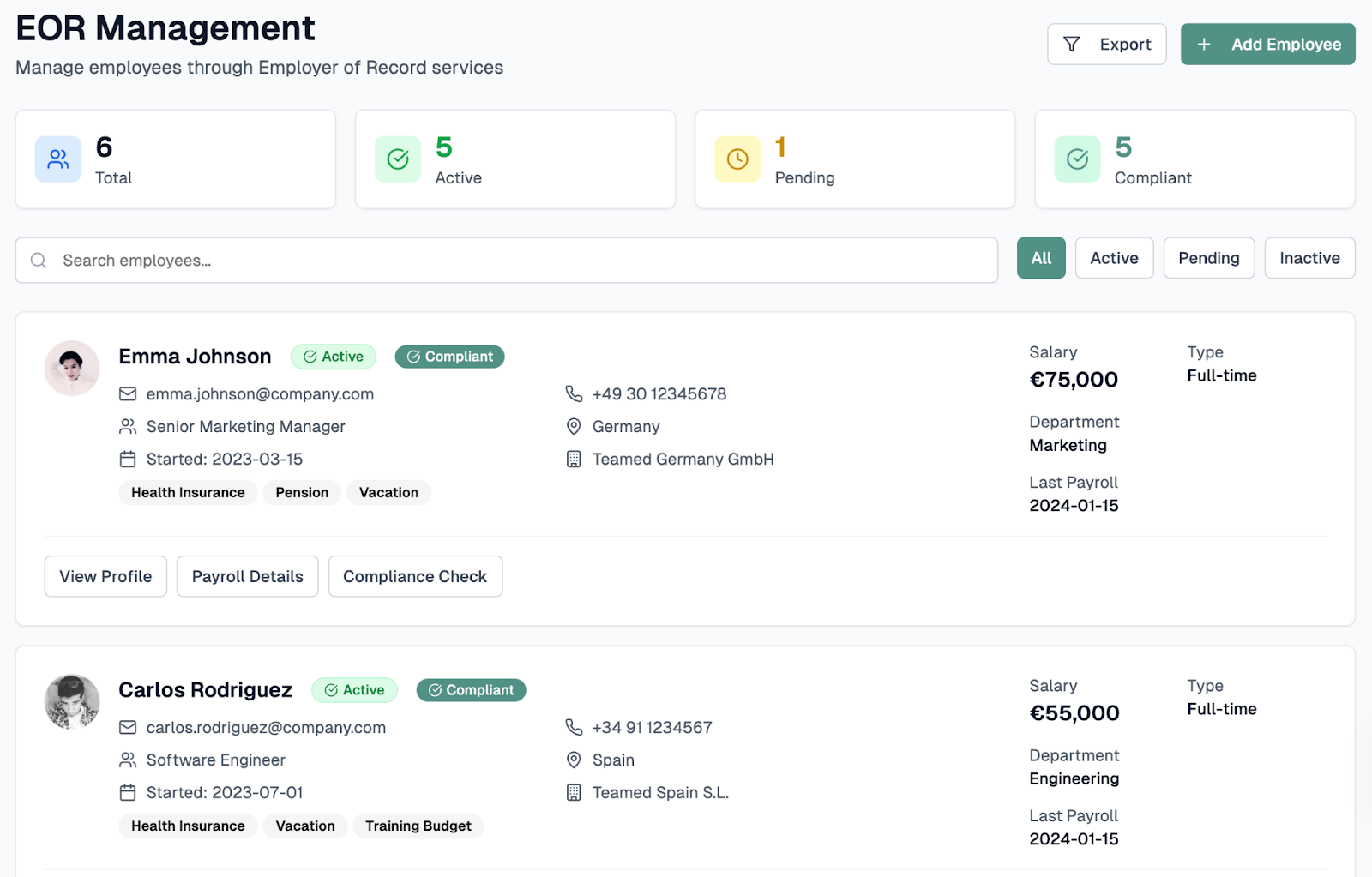
Instead, the client company (that’s you) dictates the employee’s day-to-day work, sets their goals, manages their performance, and controls company culture.
Here’s a quick reference table recapping the above and outlining other main differences between a PEO and an EOR:
An example hiring scenario can make the difference even clearer. Let’s check out the below.
Comparing PEO and EOR-powered expansion
Imagine you’re a London-based software development company that wants to offshore development to Romania.
If you only want to hire a handful of developers and don’t want the hassle of setting up a legal entity in the country, using an EOR is a great choice. It acts as the legal employer and handles payroll, taxes, compliance, and all related paperwork.
A PEO might be better if you already have a presence in Romania or want to set up shop there. It can provide legal advice, payroll support, and other HR services for your Romanian staff while you remain their official employer.
That also means the Romanian government will knock on your door if something goes wrong.
👉To learn more about how an EOR works, check out our article on Global Employer of Record Services (EOR).
What are the benefits of hiring through a PEO vs. an EOR?
An EOR helps you hire faster, removes compliance risks, and keeps costs low. A PEO gives you more control, so you’re on the hook for regulatory compliance.
Here’s how the benefits of hiring internationally through a PEO vs. an EOR compare.
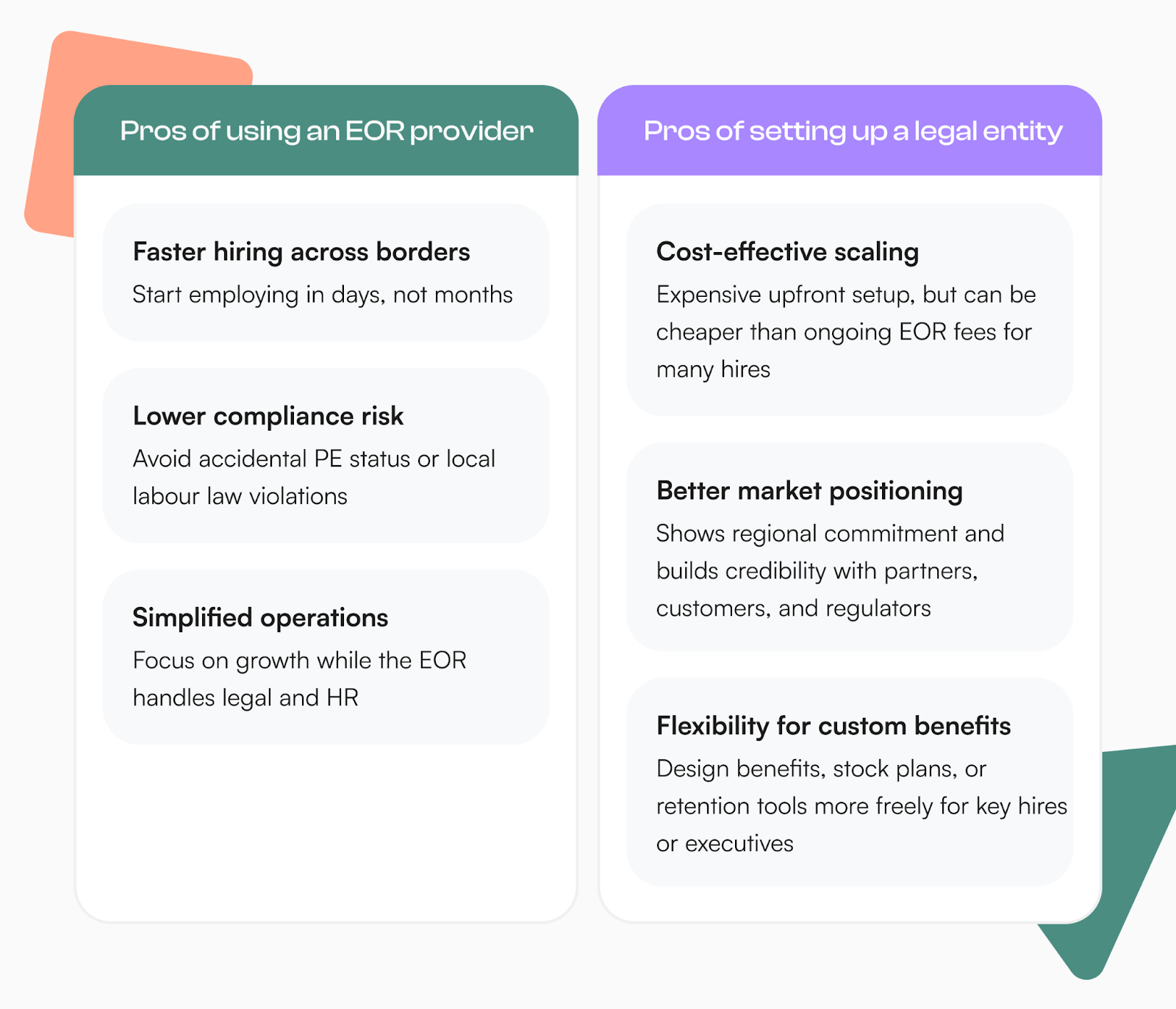
As you can see, an EOR is faster, simpler, and brings fewer compliance risks.
On the flip side, you’ll first need to establish a legal entity to hire through a PEO, though that doesn’t necessarily make it a bad choice. It all depends on your hiring needs.
Next, you’ll learn about the factors to consider when choosing between the two.
Factors to consider when choosing a PEO vs. an EOR
For mid-market companies, cost, speed, and complexity matter. You may not have the resources or budgets of enterprise competitors, so it’s essential to move fast and stay lean.
You’ll also have to consider how you balance control with compliance and the ability to scale.
Here’s a quick summary of how PEOs and EORs compare across key factors:
Here’s more information on each factor to help you make a considered decision.
Cost
An EOR offers much lower initial setup costs compared to a PEO.
That’s because a PEO requires you to form a legal entity, which can cost as much as $40,000 in some countries.
There are also ongoing costs to consider, including:
- Annual business registration fees
- Legal fees
- Accounting and banking fees
- Office registration and rent fees
You don’t have to worry about any of these with an EOR, as it only charges a monthly fee per employee. With Teamed, for instance, you’ll pay £400 ($535) per employee, per month.
Note: EOR pricing often appears higher than PEO pricing because it bundles benefits administration, local payroll fees, and other services. You’ll need to settle these separately when using a PEO.
How to choose the right hiring model:
- PEO if you already have a legal entity or plan to stay in a country for years, to absorb the initial costs
- EOR if you don’t have a large budget, want to test the waters first, or plan to hire in multiple locations at once
Compliance
An EOR acts as the legal employer and assumes most of the risk. It’s responsible for complying with labour laws and applying the correct tax codes.
While you may still face minimal joint-employer exposure risk in rare cases, the EOR handles most compliance-related headaches.
When you share compliance duties with a PEO, legal responsibility ultimately sits with you. If your contracts violate local law, misclassify workers, or fail to meet statutory benefit requirements, you’ll be the one to face fines and legal action alone.
A PEO can advise and guide, but doesn’t absorb any liability.
How to choose the right hiring model:
- PEO if you have large internal legal and HR departments that understand the local market
- EOR if you’re entering an unfamiliar legal system or lack in-house HR and legal expertise
Speed
On average, it takes around six weeks to hire a new employee. EORs let you hire employees in days.
Onboarding can happen within 24 hours in some cases because there’s no need to create a new entity, open bank accounts, or seek government approval. EORs already have the hiring infrastructure in place.
Hiring through a PEO can take much longer because you need to set up a new legal presence. That means:
- Appointing local directors
- Opening bank accounts
- Registering tax and trade accounts
All of this takes time. While a PEO can start processing payroll and handling other HR needs relatively quickly, the bottleneck is the initial setup.
How to choose the right hiring model:
- PEO if you’re planning long-term and can afford to wait months before your first hire starts
- EOR to quickly scale capacity or compete in competitive hiring markets
Complexity
EORs streamline the international hiring experience.
They handle contracts, payroll, taxes, benefits, and legal requirements through an end-to-end service. Even if you hire employees in 20 countries, all you have to manage is one relationship with your EOR service provider.
In most cases, you’ll manage everything through a single dashboard like the one below:

Hiring through a PEO is a little more complex and requires teamwork. Your co-employment relationship means you’ll need to align with your PEO’s workflows while also meeting local laws and policies.
Things get more complex as you expand. Every territory means creating a different entity, arranging a new PEO relationship, and complying with local labour laws.
How to choose the right hiring model:
- PEO if you have a large back office that can handle the co-employment process.
- EOR if you have a lean back office and prefer to outsource administrative work
Scale
The nature of EORs means you can quickly scale hiring efforts globally.
Want to hire one person in Tokyo, two in Sydney, and three in Toronto? An EOR can handle that without setting up separate entities.
You can quickly downsize, too, or exit a market altogether. An EOR can even help you establish your own foreign entity when the time comes.
PEOs are suitable for scaling within a single country.
Once you’ve established your entity, adding as many employees as you need is simple. PEOs often offer volume-based discounts as your global team grows. It’s only when you want to hire in a different country that PEOs struggle to keep up.
How to choose the right hiring model:
- PEO if you’re building a large, permanent base in one or two countries
- EOR to test markets, hire small distributed teams, or if you need the flexibility to pivot
Think you know which model works best for your organisation? Use the following checklist-style questionnaire to confirm.
5 questions to check you’re making the right choice
Making the right choice between a PEO and an EOR can be as simple as asking yourself a few questions.
If you’ve weighed up the factors above and you’re still not sure, then consider the following:
1. How many employees are you hiring?
- Hiring 1–20 employees per region makes an EOR simpler and cheaper. There’s no entity setup, onboarding is faster, and mid-sized businesses will achieve a lower total cost of ownership.
- A PEO could pay off in the long run if you hire more than 15–20 employees in a single country. You must be willing to commit to the market for years, though.
2. What’s your back office like?
- If you have a lean team with limited bandwidth, an EOR will minimise distractions and reduce the burden. It handles everything so that you can focus on growth, not compliance paperwork.
- If you have a robust HR team that wants to keep control, then a PEO can support and enhance your internal processes.
3. Do you have a legal entity in other countries?
- If you have a legal entity in the country you’re hiring, a PEO can help you scale and cost-effectively reduce the administrative burden.
- If you don’t have a legal entity, an EOR should be your first point of call. You can always establish a legal entity later.
4. Do you want to handle employee contracts?
- If you don’t want to handle employment contracts, an EOR can manage them for you. It will reduce administrative tasks and keep you compliant in one go.
- If you do want to handle employment contracts, a PEO can offer expert advice and assistance. But you remain in control (and fully accountable).
5. What are your expansion plans?
- If you want to hire staff in multiple countries, an EOR lets you do this at scale. You’ll pay the same per-employee fee, no matter where you hire.
- If you’re only hiring in one country, a PEO can make fiscal sense. Or start with an EOR and transition to an entity later.
For most mid-market and small businesses, EORs offer more advantages than PEOs. They’re faster, easier, and provide greater legal protections, all without you setting up an entity.
Now, let’s look at how you can find the best EOR provider.
👉Learn what to consider before choosing an EOR partner in our handy guide.
What to look for in an EOR provider
Not all EORs are the same. You’ll find that customer support, compliance, and even technology can vary, so it’s crucial to fully assess an EOR vendor before signing a contract.
Here’s what you need to look for when choosing a solution.
Support
Global employment touches multiple time zones, cultures, and regulatory systems. You need more than the ticketing systems and chatbots some providers think are a good “Deel.”
Human support is a must. That’s why, at Teamed, our experts are there for the good times and the messy times — from onboarding and growth to exits, disputes, and audits.
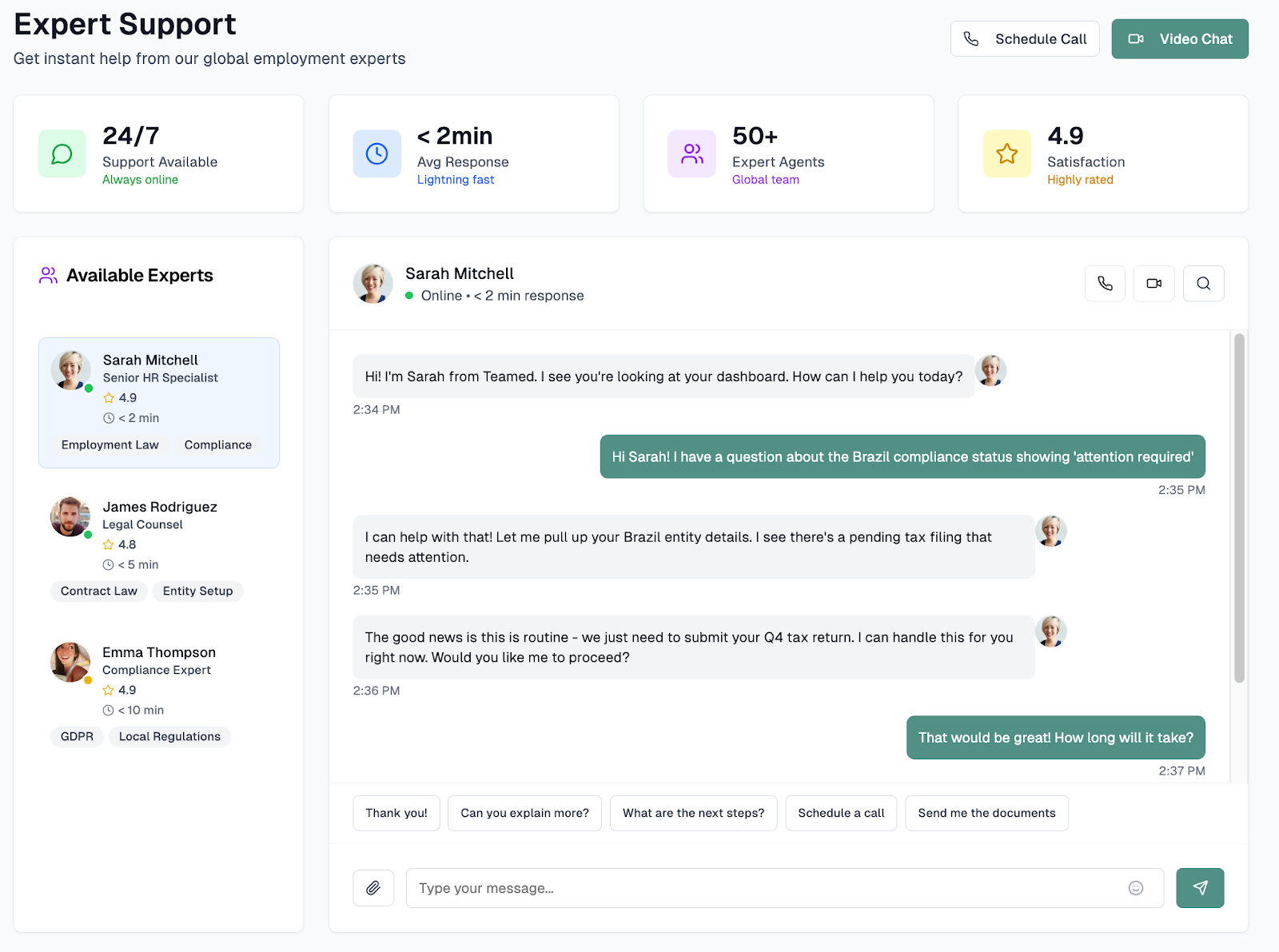
You get real experts on the line 24/5 — people who know global hiring inside out. And you can track everything in a handy dashboard like the image above.
👉Example in action: Discover how Teamed’s expert support quickly allowed Teker, an IT, aerospace, defence, and security technologies company, to expand hiring in France without a physical presence. And all while delivering an exceptional employee experience.
Compliance
Local labour laws are a minefield. Statutory minimum wages change, pension contribution rates increase, and holiday entitlements shift.
Your EOR must proactively stay ahead of these changes to avoid penalties and lawsuits.
At Teamed, we make it easy to see any potential compliance risks in one handy dashboard:
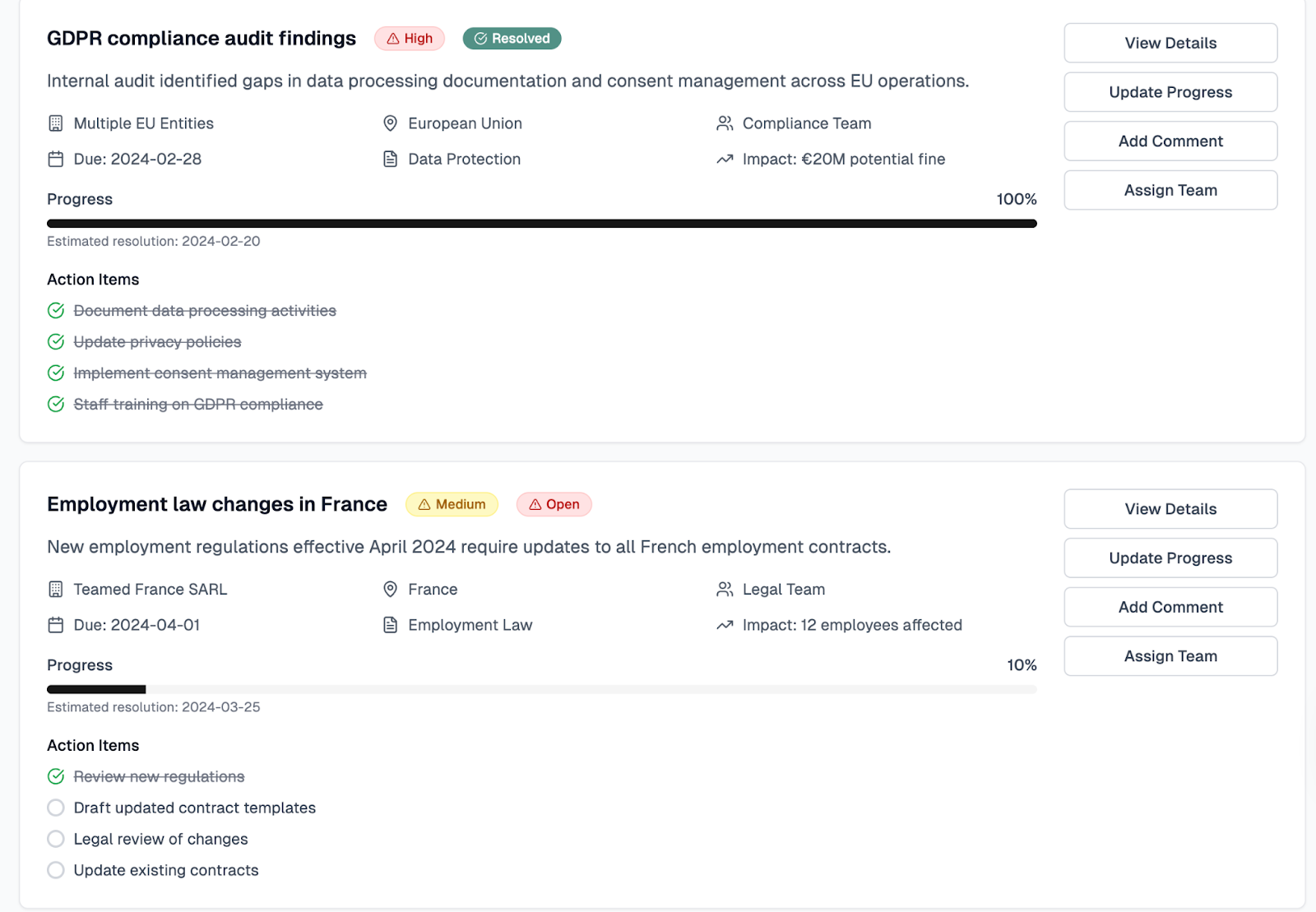
We handle all compliance risks, taxes, and benefits in 180+ countries, so you don’t have to worry. Plus, our dedicated compliance screen lets you keep track of everything.
👉Example in action: See how Teamed’s in-country experts guided Web3 company Luganodes to grow its global workforce by over 50% while paying employees in crypto and complying with local labour laws.
Onboarding
An efficient onboarding process builds trust and sets the tone for the employment relationship.
On the flip side, delays, confusion, or poor communication damage employee engagement and increase the risk of candidates backing out.
With Teamed, customers can save 30+ hours per hire and get new international team members up and running in 24 hours or less, with tailored benefits packages.
👉Example in action: Learn how property management company City Relay expanded its remote workforce by 80% and can onboard new hires in 24 hours, thanks to Teamed’s human-first approach.
Migration
Moving from one EOR to another shouldn’t impact your processes or employees. That’s why it’s critical to find an EOR that promises seamless migrations and fast transition timelines.
Switching to Teamed? We’ll create a step-by-step migration plan (backed by enterprise-level security) that fits your business, with no extra charges or surprises.
Employee-first approach
Happy employees work harder, stay longer, and refer top talent. Give them what they need in the form of great benefits, fast payouts, and an employee-centric experience.
At Teamed, we have an employee-first approach. We give all candidates equal opportunities and take care of everyone, no matter where they’re based.
You can manage every EOR employee through a single dashboard and check their status at a glance.

We’re still completing Alex’s tax forms in the above example. But Maria is good to go.
👉Example in action: Discover how Teamed has helped accountancy firm CT manage HR inquiries — from holiday pay to maternity leave entitlements — and improve future planning.
Transparent, predictable pricing
Unpredictable pricing and hidden fees can destroy trust and wreck budgets.
It’s a particularly thorny problem for businesses rapidly scaling cross-border hiring. Many companies get locked with vendors whose pricing skyrockets with hidden fees or non-optional add-ons.
Teamed is different. We offer transparent, predictable pricing with no nasty surprises. No matter where you operate or how many employees you hire, EOR pricing will always be £400 ($535) per month.
👉Take our quick quiz to find out whether it’s time to look for a new global hiring partner.
PEO vs. EOR FAQs
Q: Is PEO the same as EOR?
A: No. Both manage workers’ compensation and offer HR support, but a PEO is a co-employer that supports your entity’s staff, while an EOR is the legal employer for workers abroad. An EOR offers a much more hands-off service to mid-sized businesses.
Q: What is co-employment?
A: Co-employment is an arrangement that means both your business and the PEO share employer responsibilities. You manage their workload, enforce workplace policies, and take ultimate responsibility for the employment contract. The PEO manages HR, payroll, and benefits administration.
Q: What types of businesses can benefit from EOR services?
A: Many businesses benefit from EOR services, particularly those pursuing global expansion, remote work, or testing new markets without committing to expensive entity setup. Examples include:
- Startups that lack the resources to open subsidiaries in new markets
- Tech firms that need to scale rapidly
- SMEs curious about expanding into new geographies
- Any company hiring remote or contract workers
Q: How do I choose between PEO services and an EOR provider for my business?
A: Consider upfront costs, timelines, flexibility, and legal responsibility when choosing between a PEO and EOR. For the vast majority of mid-market businesses, an EOR will be the best choice.
Q: How do PEOs and EORs handle employee benefits differently?
A: Both PEOs and EORs manage employee benefits, but they do so in different ways. PEOs pool benefits across clients to offer group rates. EORs provide country-specific benefits.
Q: Are there other employment models?
A: Yes, several other employment models exist besides PEOs and EORs. Businesses can hire directly by creating a permanent establishment and managing HR internally, or enter into full-time or part-time contractor agreements with freelancers.
Your no-brainer EOR provider
Global hiring has never been easier thanks to EORs.
Teamed makes the process even simpler. You get HR compliance, multi-country, and multi-modal payroll baked in, alongside effortless documentation and even entity setup help when you need it.
Add expert in-house support (available 24 hours a day, every working day) and fair, transparent pricing, and Teamed becomes a no-brainer.
It’s no wonder three in four customers who evaluate multiple providers pick us.
Book a call today and join 1,000+ growing teams like Globant and Williams Racing who trust Teamed to pay their global workforce, stay compliant, and scale with confidence.



